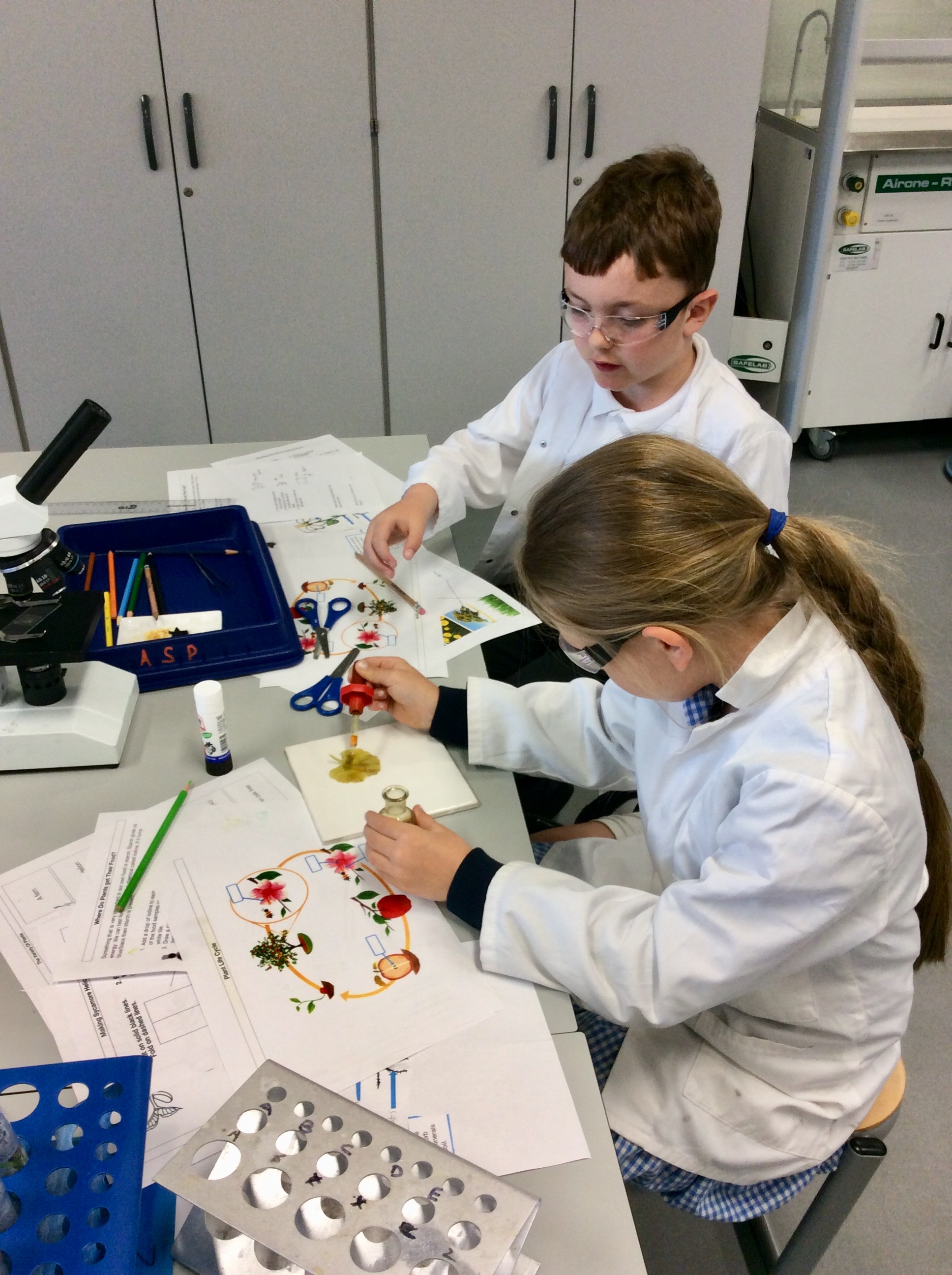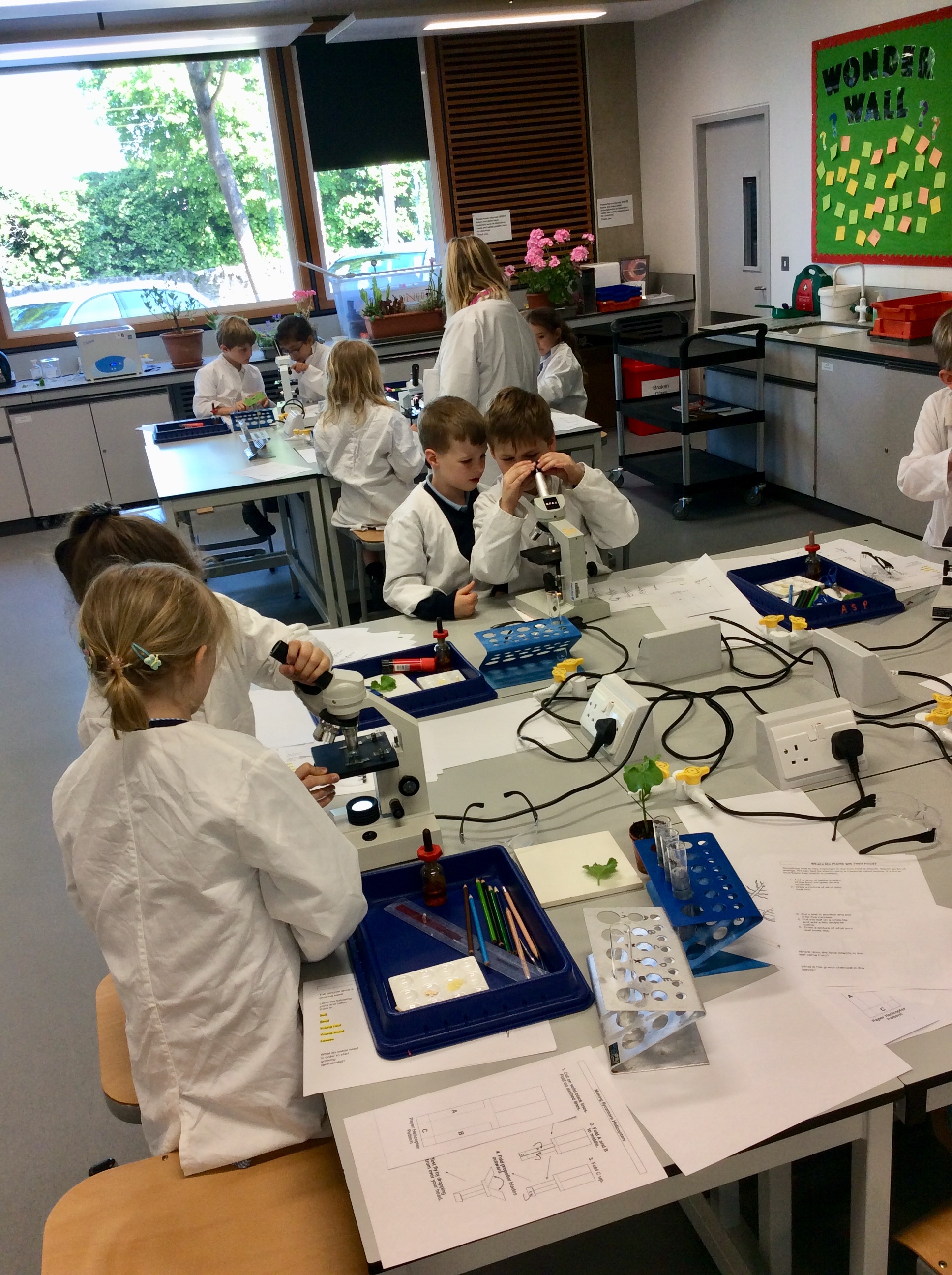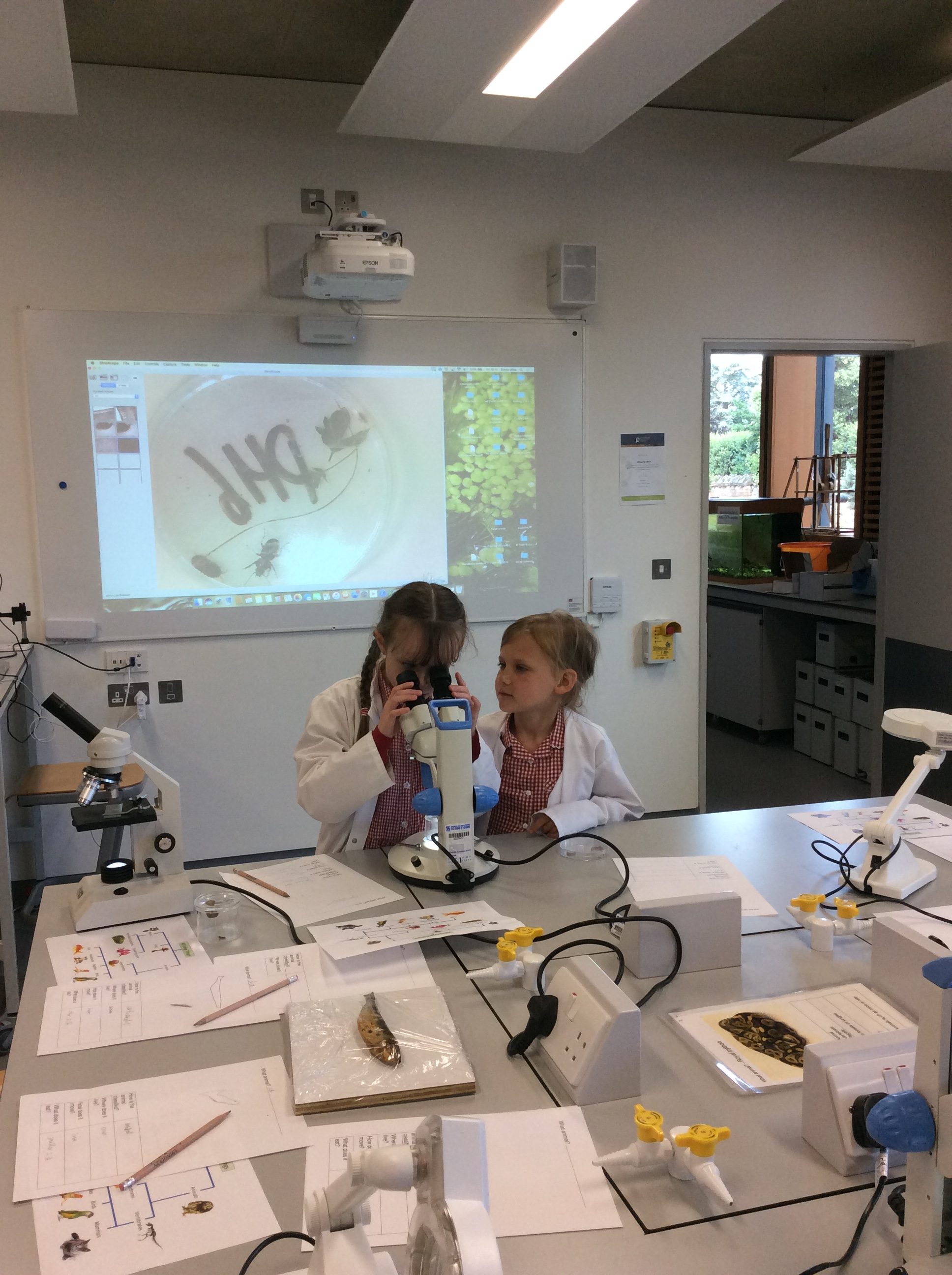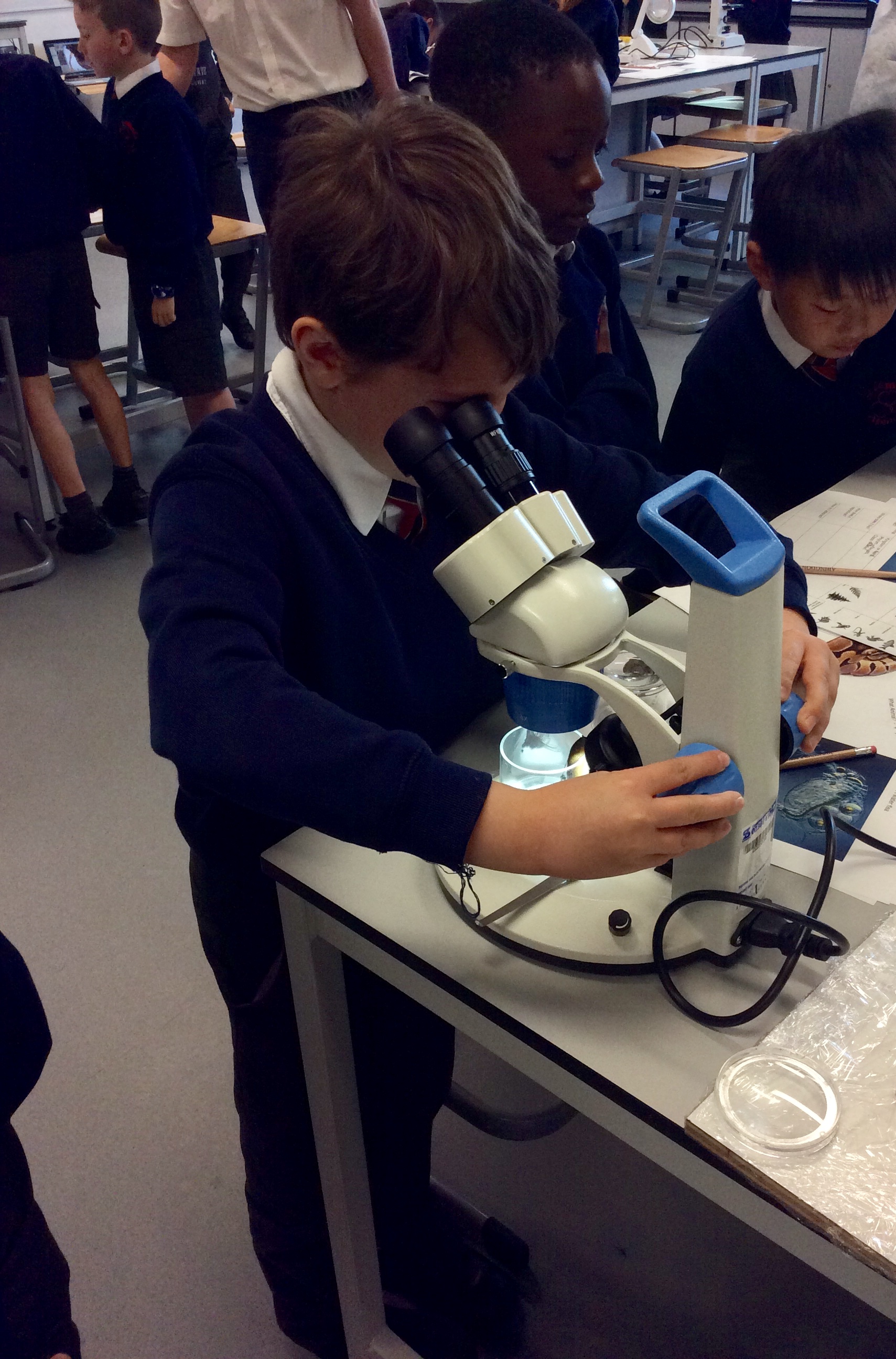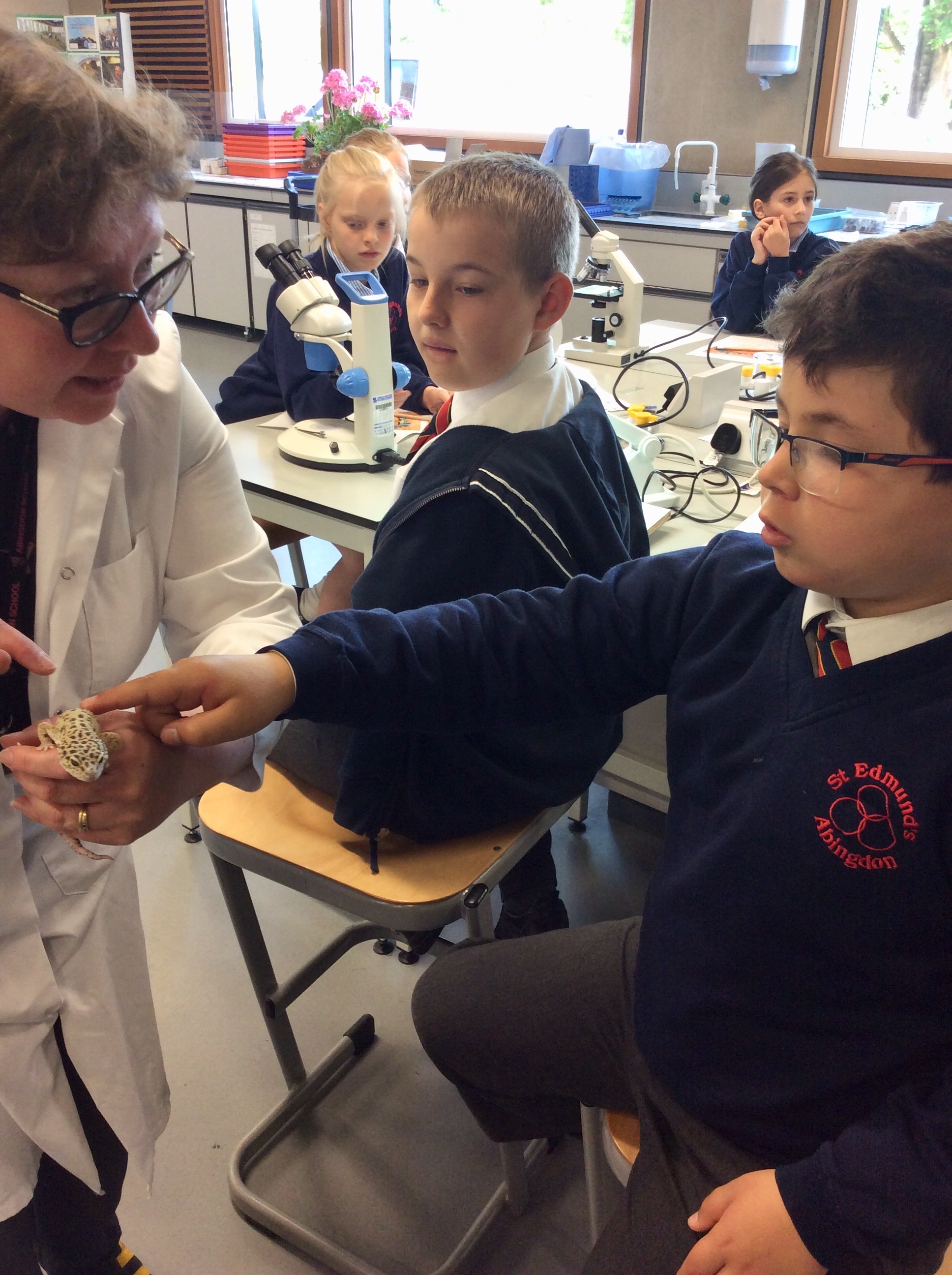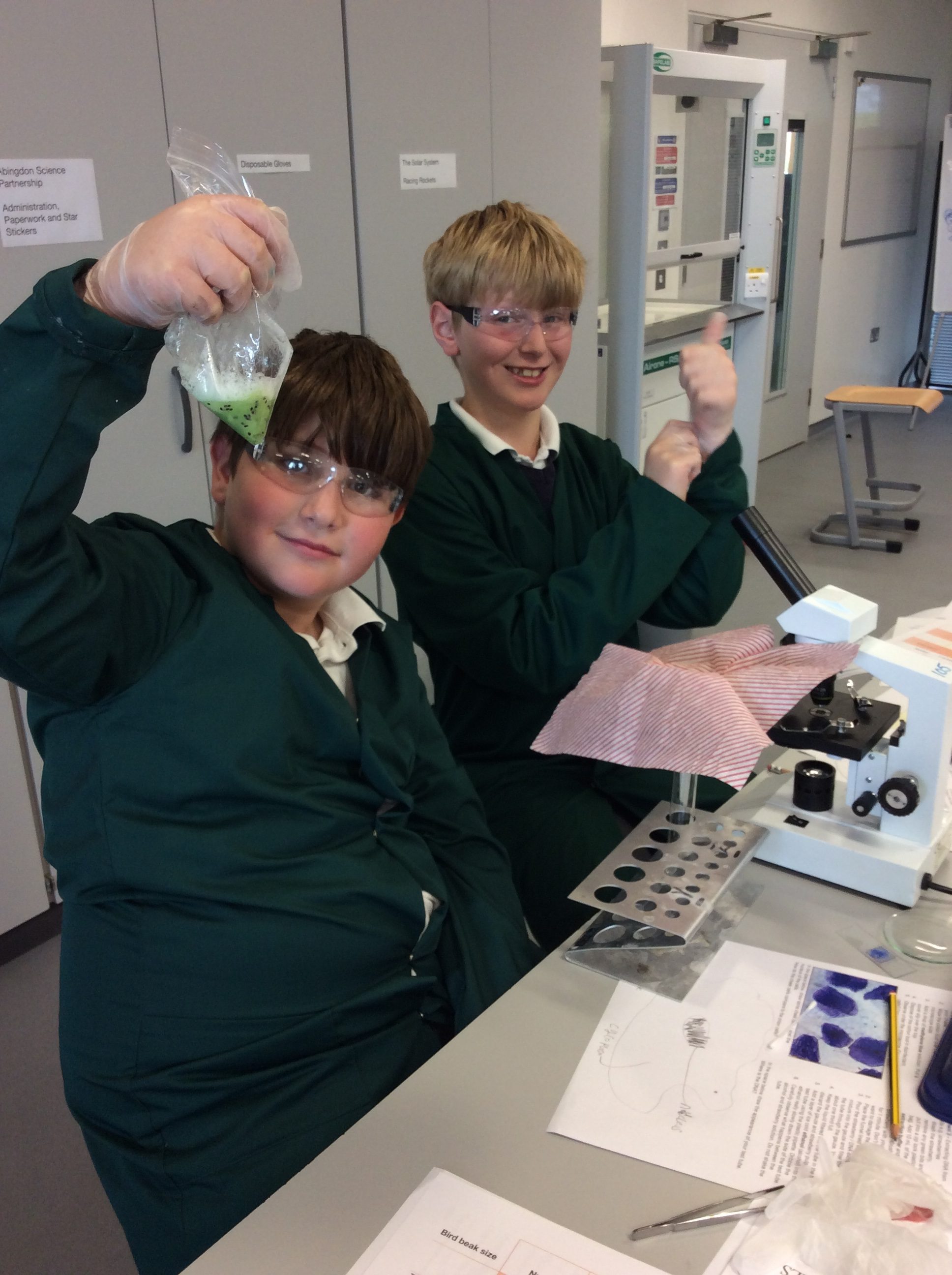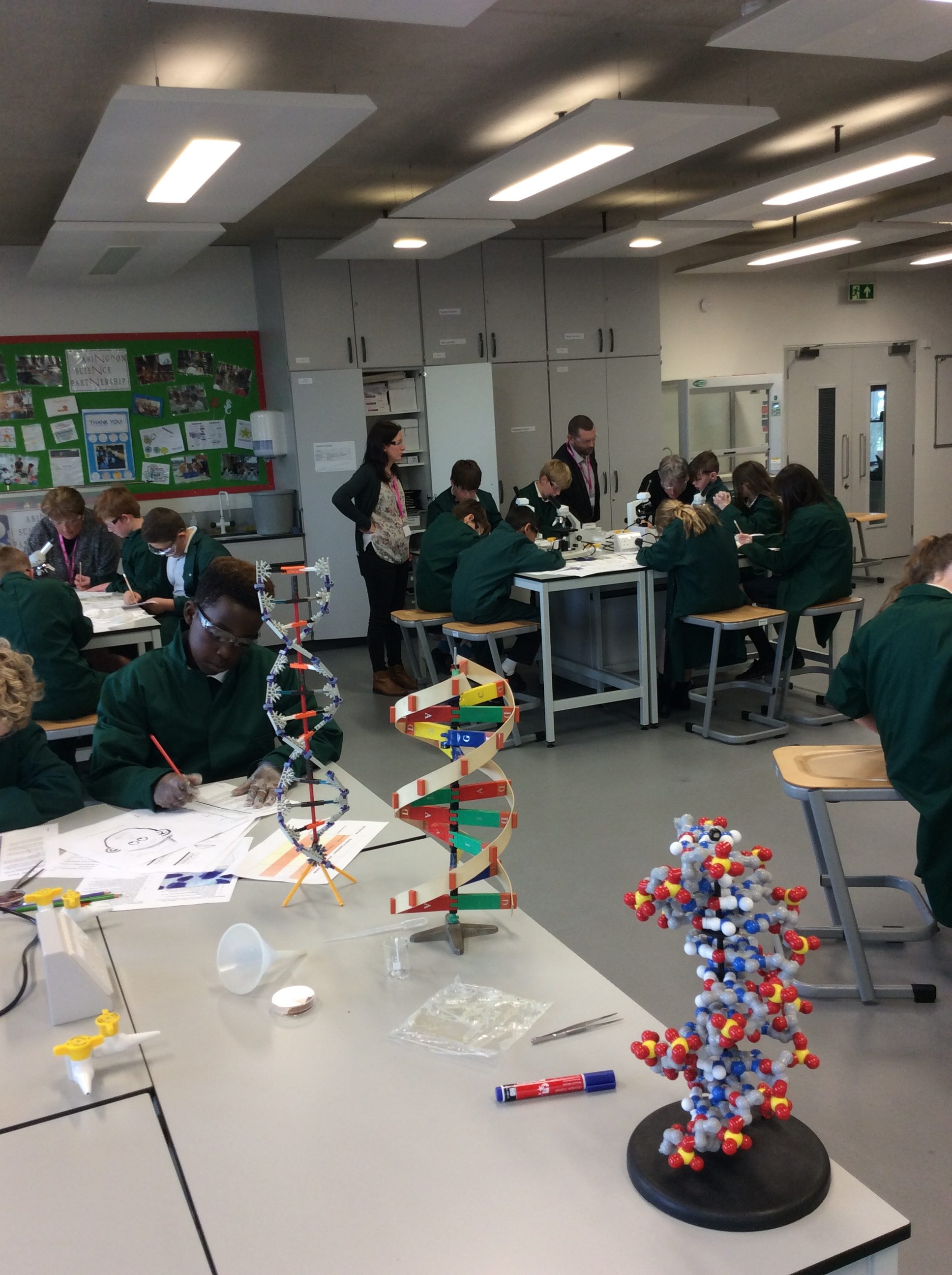Pupils will observe a range of different plants, from algae and moss to colourful flowering plants. They will then be guided through labelling different parts of a plant. Next pupils will carry out a chemical experiment to investigate ‘How do plants feed?’ to introduce the idea of photosynthesis.
Suitable for school year 1.
In this workshop pupils will carry out several experiments to understand how plants make their own food using energy from the sun. First, pupils will test onion to see if it contains sugar. Secondly, they will test leaves to see if they contain starch, and whether this result changes in different light conditions. Using microscopes, pupils will observe the structure of plant cells, algae cells and leaves.
Suitable for school years 3-6.
Pupils will be shown a selection of the wide range of animals that live in the Science Centre, including musk turtles, crayfish and Chroma, our grumpy but beautiful chameleon! As a group, they will discuss the animals’ habitats and adaptations. Then pupils will have the chance to use microscopes to get up close and personal with some smaller creatures, draw their features and apply their new knowledge to identify their habitats.
Suitable for school years 1-4.
Following a group discussion on types and functions of skeletons, pupils will work together to label the bones of our resident ASP skeleton. Next pupils will study the skulls of different animals and discuss their different adaptations. Finally, pupils will get to feel like true biologists by dissecting an owl pellet and discovering the different bones hidden within.
Suitable for school years 3-6.
After a demonstration of the heart and discussing basic facts about its function, pupils will use heart rate monitors to investigate the effect of body position on heart rate and plot a graph of their results. Following a discussion on how to keep our hearts healthy, pupils will learn to measure blood pressure. Finally, pupils will use microscopes to study human blood samples and learn about red and white blood cells.
Suitable for school years 3-6.
As a group, pupils will label different parts of our colourful, homemade digestive system and discuss their different functions. After discussing food groups and the importance of a balanced diet, students will use lab equipment to carry out classic chemical experiments to test whether different foods contain sugar and/or protein.
Suitable for school years 3-6.
Using microscopes, pupils will study onion cells and their own cheek cells to identify the nucleus, the location of DNA in cells. Then, pupils will have great fun crushing up fruit to then extract the DNA from the plant cells! If time permits, they can observe dividing cells from a root tip and hopefully see the actual chromosomes.
Suitable for school years 5 and 6.
In this workshop we will go pond dipping in the Science Centre’s very own pond. Pupils will then study the pond’s inhabitants using microscopes and use their observations to draw magnified, scale drawings of different pond organisms. Please note that this workshop is available in the summer term only.
Suitable for school years 5 and 6.
The Lab Skills workshop focuses on giving older primary pupils a chance to experience a secondary school science lab and to practise some of the skills they will need to learn practical science confidently from Key Stage 3 onwards. The workshop can be adapted in various ways, to include activities relevant to safe working in any of the main science subjects, including microscopy and electric circuits as well as Bunsen burners and glassware.
Suitable for school years 5 and 6.

